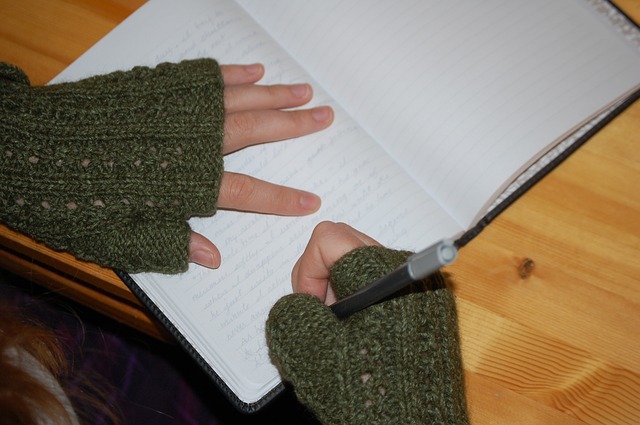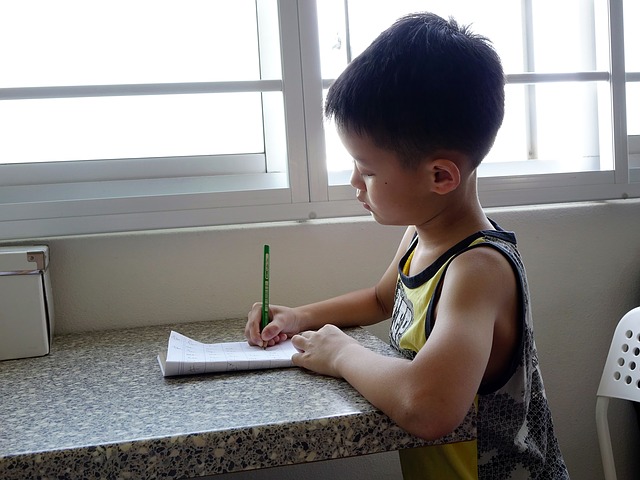Dysgraphia: When Writing Seems Impossible!
Have you seen your kid unwilling to write from time to time? Maybe, you have ignored it thinking that it is just a phase, or he or she might just be slacking off. In reality, things could be much worse! Have you heard about dysgraphia before? It's quite common to know about dyslexia, but not a lot of people are familiar with disorders like dysgraphia or dyscalculia.
In simple words, dysgraphia is a form of the disorder that hinders a person from writing fluently. Some may call it the "writing related dyslexia." However, that would be a wrong definition.Â
Of course, there are links and connections between dysgraphia and dyslexia, but they are completely different disorders.
So, today we shall try to discuss this disorder, how can you identify someone with dysgraphia, and what should be your roles as a parent or a teacher.
What is Dysgraphia: The Basic Fundamentals
If you dismantle the word âDysgraphia,â you can understand the core nature of the disorder quite easily. The word is derived from two Greek words â“ Dys and Graphia. Dys means to âhave any difficultyâ and Graphia means "forming letters."Â
So, it is pretty clear that dysgraphia definition has to do something with âhaving difficulties forming letters.â
In no way, you should think that a child with dysgraphia is less intelligent or lacks motivation. They are not even trying to waste time by procrastinating. It is a condition that makes the process of transcription hard for a person.

There are different forms of transcription â“ handwriting, spelling, and typing. It takes a lot of focus and concentration for a patient to convey their messages in written form.
Though it may seem that is relatively slower than the peer in terms of thinking or being creative, the main problem lies within written expression and letter forming and nothing else.
Here is a list of activities that a child with dysgraphia would find hard doing â“
- Arranging and forming letters to create words
- Deciding the proper amount to the spacing between the words in a page
- Maintaining a straight line while writing in a clean sheet
- Keeping the size of the letters uniform
- Difficulty to maintain a proper grip of the pen or the pencil
- Putting too much pressure on the paper while writing
- Maintaining a proper posture while writing
- Connection to other disorders like DCD or ADHDÂ
These can be said to be some of the basic signs that a person has dysgraphia. However, there are clearer symptoms and signs that we would discuss now.
Five Group of Dysgraphia Symptoms
Over the years, experts have identified five vital group symptoms that almost every child with dysgraphia has. It is not mandatory to have all the symptoms present in someone. Even one or two symptoms can be a crucial determinant. You could think of them as dysgraphia examples.Â
Lack of Sense of Spatial and Visual Abilities
- Trouble finding distinction among shapes
- Cannot decide the proper amount of spacing between words
- Difficulty writing in the proper direction, i.e., left to right
- Cannot maintain writing within margins or boxes
- The inability of reading maps
- Difficulty in drawing shapes and images
- Slower writing
Inferior Motor Functions
- Cannot hold writing tools (pens or pencil) properly
- Holds different parts of the pen in an awkward manner

Difficulty Expressing Thoughts
- Slower typing and writing speed as they cannot arrange ideas and thoughts properly
- Difficulty understanding and following rules in a game
- Constantly getting lost in the train of thoughts
- Cannot remember what he or she was going to write in the middle of writing
Spelling Seems Too Hard
- Has a hard time understanding the rules of spelling
- Speaks the spelling perfectly but makes mistakes while writing it
- Might misspell the same word over and over again
- Cannot differentiate between right and wrong spelling
- Mixes up uppercase and lowercase letters
- Mixing of printing fonts and cursive fonts while writing
- Has a hard time reading the text he or she has written
Constant Grammatical Mistakes
- Misusing or not using punctuations at all
- Improper subject-verb agreement in the sentences
- Has an inferior or no sense of correct tense of the verbs
- Not finishing sentences like a list format
How Parents and Teachers Can Help?
There is a lot of modern solution that can help a child with dysgraphia these days. The first thing should be doing dysgraphia test to be sure. Then, you could think of different learning approaches. For example, traditional schooling might be not the best option for such cases.
Finding an Individualized Education Program (IEP) could be a great way to go for. If such programs are not available in your locality, going for the homeschooling is great too.
We, SpellQuiz have a great collection of homeschooling guide and personalized learning guide that would help you get started right away.
Even some schools allow oral examinations for special cases. In no way, you should think that your kid cannot get the benefit of higher education as there are numerous examples of people getting college and university education despite having dysgraphia or dyslexia.

The best suggestion for the parents would be motivating and encouraging their children so that they never feel that they are less than any other human. It is very crucial.
As a parent, you should keep a notebook to keep track of every notable incident so that doctors or experts can have a better insight while treating your child.
You can even try helping your child with different types of hand exercises such as finger stretching, squishing sponge balls, etc. before starting to write anything.
Lastly, never push them in any competitive situation where they feel weaker. Such activities can shatter their mental strength, and the mental strength is the biggest asset a child with dysgraphia can have.
Lastly, start focusing on other skills that your child shine in and love doing. If you can find any other talent, that should his or her primary target.
Final Words
Dysgraphia is a life-long disorder, and no one has found any cure to it. We know it would feel really tough seeing your child struggling with something as simple as writing. However, if you keep being sad, your child would get hurt even more. Try to be as compassionate and supportive as possible.
If you have any further question about the disorder and want to know more, let us know. We will definitely try to answer all of your questions and even can create an advanced guide on it.Â
Now you can take part in online Spelling Bee too! Check out the SBO section on Spellquiz today! Also, try this vocabulary tester to understand your current skill level! Try these spelling tests to master English spelling!
SpellQuiz now has a wide collection of idioms and quizzes too. Also, don't forget to check the complete list of spelling words. Â
share now:
Spelling Tests per Grade


